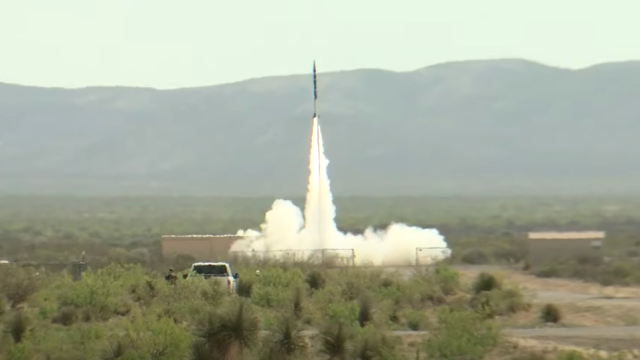More than 100 capsules containing cremated human remains have been recovered after a rocket carrying the ashes for a space memorial service exploded over the New Mexico desert.
Up Aerospace launched its suborbital rocket on Monday at 12:45 p.m. ET from Spaceport America. The rocket was carrying over a dozen student experiment payloads for NASA, as well as the cremated remains of a late NASA astronaut and a chemist, among others, whose families had sent them off for a suborbital memorial service. About three seconds after liftoff, however, the rocket suffered a fatal anomaly that caused it to blow up.
Incredibly, the cremated ashes survived the explosion and have been recovered, according to space memorial service Celestis. “All 120 flight capsules are safely in the hands of launch personnel and will be returned to us awaiting our next flight,” Charles Chafer, Celestis co-founder and CEO, explained in an emailed statement. “While the rocket was destroyed in flight, the care and professionalism of our launch service provider — Up Aerospace — ensured that the Celestis payload was unharmed and will be able to be relaunched.”
The Texas-based company, which specialises in launching human remains to space, designs its missions to ensure there’s a decent chance of recovering the payloads should the rocket fail to reach space, according to Chafer.
Celestis’s Aurora Flight mission included the cremated remains of NASA astronaut Philip K. Chapman, who died in April 2021, as well as chemist Louise Ann O’Deen. The recovered payloads will get to fly again on board the company’s next mission, Perseverance Flight, which will be scheduled to take place “as soon as UP and Spaceport America complete their investigation and any required fixes are implemented,” Chafer said.
The rocket was also packed with 13 payloads from NASA’s TechRise Student Challenge — a series of science and technology experiments created by students from the sixth to 12th grades. But NASA is not looking to recover its payload, and is instead promising to launch other TechRise experiments in the future.
“Each of these TechRise student teams should be proud of their accomplishment in delivering an experiment for launch and we will be working on future opportunities for them to see their experiments in space,” Christopher Baker, program executive for the Flight Opportunities program at NASA’s Space Technology Mission Directorate, said in a statement.
